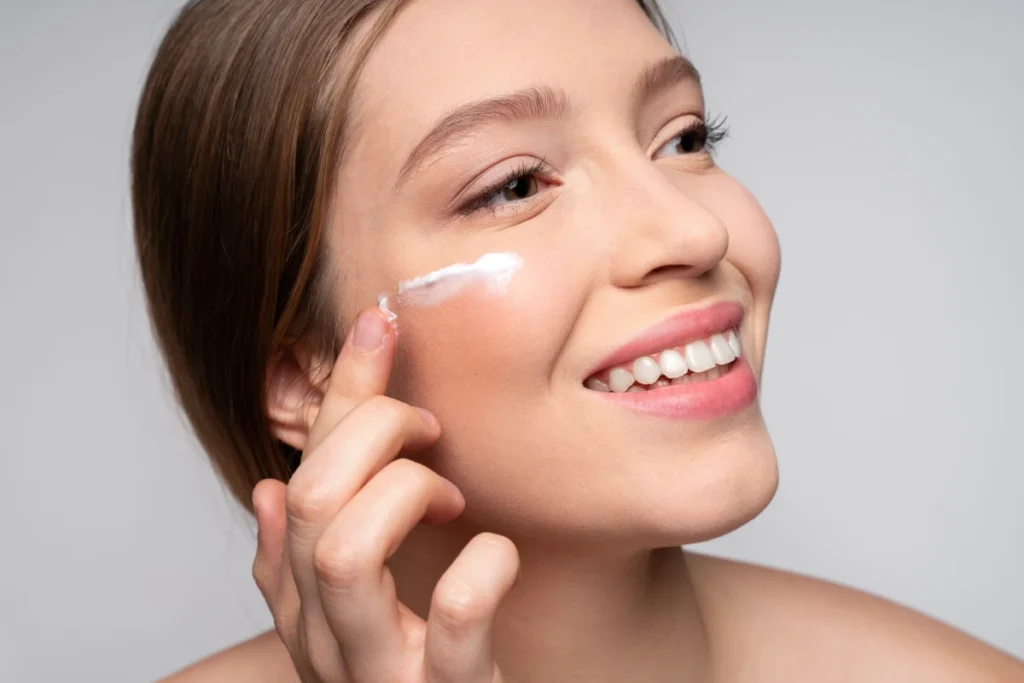Are you wondering what’s making your skin dull and flaky? Here are the top dry skin causes you need to look out for.
Is dry, flaky skin keeping you from achieving a smooth, luminous complexion? If your skin looks and feels tight and flaky, especially after washing your face, you are dealing with dry, sensitive skin. While you may not have to deal with the greasy sheen every day, dry skin ages more rapidly, develops fine lines and wrinkles early, and lack of moisture causes several skin-related problems, all of which could make you look older than you are. Managing dry skin can feel like an uphill battle if you are not equipped with the right information. From top dry skin causes to how you can treat it, here’s everything you need to know to achieve a plump and dewy complexion.
What are the top dry skin causes?
Here are some of the top dry skin causes you need to look out for:
- Indoor heating

Have you noticed that your skin feels particularly dry and dehydrated during the colder months? Indoor heating could be responsible for that. Artificial heating and air conditioning systems can create a dry environment, sapping the moisture from the skin, thus leaving it parched.
- Environment
If you live in cold, windy conditions or low-humidity climates, you are more prone to having dry skin. Exposure to intense sunlight can also lead to dehydrated skin.
- Genetics
Some people are predisposed to having dry skin. This can be influenced by both family history and genetics. According to one research, mutations in genes that affect the production of the protein filaggrin, which aids in the formation and hydration of the skin barrier, can result in a variety of skin conditions. People with these mutations (approximately 10% of the population, according to the study) had drier skin and a higher risk of developing eczema.
- Ageing
Did you know that ageing is among the top dry skin causes? As we age, our skin’s capacity to retain moisture decreases significantly. This, along with a drop in oil production, could bring about dryness. Hormonal changes, particularly in women during menopause, can cause skin dryness.
- Lifestyle choices
Your lifestyle choices have a significant impact on your skin health. For example, smoking and excessive alcohol consumption can dehydrate your skin, making it more prone to dryness. If you are not maintaining a balanced diet, it is time to reconsider your choices. Since a diet lacking in essential fatty acids, vitamins, and minerals can contribute to dry skin, ensure that you incorporate these nutrients in your daily meals.
How to treat dry skin?
- Switch to a sulphate-free cleanser
Are you a fan of foamy cleansers? They could be contributing towards skin dryness as they often contain sulphates. Sulphate is a harsh cleansing agent that tends to strip the water out of the skin after every washing. I recommend opting for a face wash that has a cream or oil-based composition that keeps skin smooth and hydrated while removing grime, oil, and other pollutants. Look for alpha-hydroxy acids, often known as AHAs, in exfoliating face cleansers for dry skin to gently smooth out the skin.
- Layer your serums

Since dry, sensitive skin needs an extra dose of hydration, chances are that one serum is not going to cut it. I recommend introducing a vitamin C serum into your skincare routine. For an extra surge of hydration, layer it up with hyaluronic acid. Vitamin C serum helps your skin retain water, keeping it smooth and plump. It also helps offset daily aggressors like UV damage and exposure to air pollution, thus preventing premature ageing. Hyaluronic acid is an ultra-hydrating ingredient. It replenishes and holds cell moisture, giving you hydrated, plump skin. When used together, these serums help to lock in moisture, alleviate irritation, and promote a plump, supple complexion.
- Reach out for a heavy-duty moisturiser

A moisturiser, unsurprisingly, is one of the best skin care products for dry skin, and it is critical to apply it both morning and night. For best results, choose a thick, emollient moisturiser designed for dry, sensitive skin. To promote deep hydration and improve the skin’s natural barrier, look for ingredients like shea butter and ceramides. To lock in moisture, I recommend applying the moisturiser when the skin is still slightly damp.
If you want to learn more about dry skin causes and how to treat it, schedule a consultation with me here.
